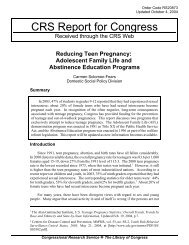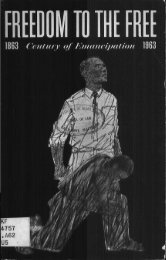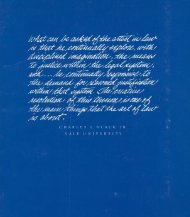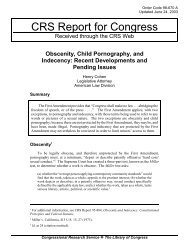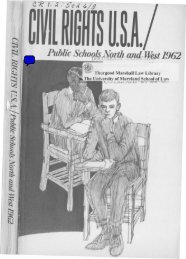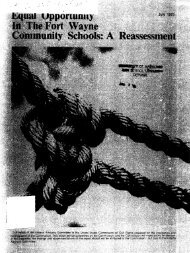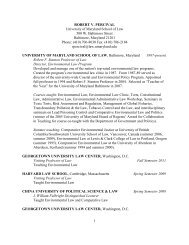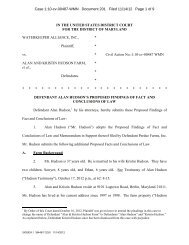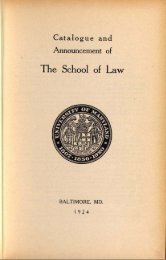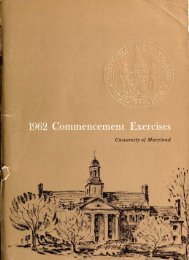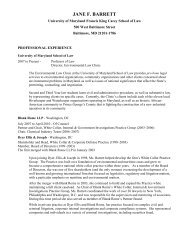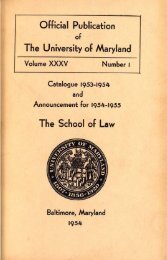journal - University of Maryland School of Law
journal - University of Maryland School of Law
journal - University of Maryland School of Law
You also want an ePaper? Increase the reach of your titles
YUMPU automatically turns print PDFs into web optimized ePapers that Google loves.
34 MD. JOURNAL OF INTERNATIONAL LAW & TRADE [Vol. 14<br />
articles dealt in by him which was used to induce the purchaser to<br />
buy them; "what, if any, peculiar feature whether in get-up or<br />
shape or whatever it may be." Was there anything about the goods<br />
which by way <strong>of</strong> get-up says to the purchaser: "This is a thing for<br />
which (the [U.S.] sales agents) are responsible, not necessarily as<br />
makers, but as persons who have dealt in it and who guarantee its<br />
quality to you. "87<br />
If there is such a peculiar feature to a good, then an importer has<br />
no "right to sell in such a way or under such circumstances as to induce<br />
belief or trade upon the understanding that the [goods come]<br />
from the [U.S. agent] or they are identical to those sold by the [U.S.<br />
agent] .88 In the gray market goods context, therefore, a feature peculiar<br />
only to the United States trademark and creating public understanding<br />
that the goods come from the American trader, would warrant<br />
protection.<br />
A second common law cause <strong>of</strong> action, in addition to unfair competition,<br />
is intentional interference with contractual relations. This tort<br />
is only loosely, and <strong>of</strong>ten mistakenly used by the courts, but it is a<br />
viable cause <strong>of</strong> action. 8 9 In addition to the courts which have made<br />
actual use <strong>of</strong> it, the Restatement (Second) Torts has adopted this tort<br />
and stated its elements clearly:<br />
One who intentionally and improperly interferes with the performance<br />
<strong>of</strong> contract ... between another and a third person by inducing<br />
or otherwise causing the third person not to perform the contract,<br />
is subject to liability to the other for the pecuniary loss<br />
resulting to the other from the failure <strong>of</strong> the third person to perform<br />
the contract. 90<br />
A domestic parent may take advantage <strong>of</strong> this tort by having its<br />
foreign affiliate enter into a contract providing that the affiliate will not<br />
sell the trademarked goods in the United States, as well as not sell the<br />
goods to a third party who intends to import the goods into the United<br />
States. If a third party should purchase the product from the foreign<br />
company and subsequently attempt to sell it in the United States, no<br />
87. Id. at 560-61.<br />
88. Id. at 561.<br />
89. See e.g., DEP Corp. v. Interstate Cigar Co., 622 F.2d. 621 (2nd Cir. 1980).<br />
90. 90. RESTATEMENT (SECOND) TORTS § 766 (1977). Compare with RESTATE-<br />
MENT (SECOND) TORTS § 766C providing that there is no liability for the negligent<br />
interference with contractual relations.



